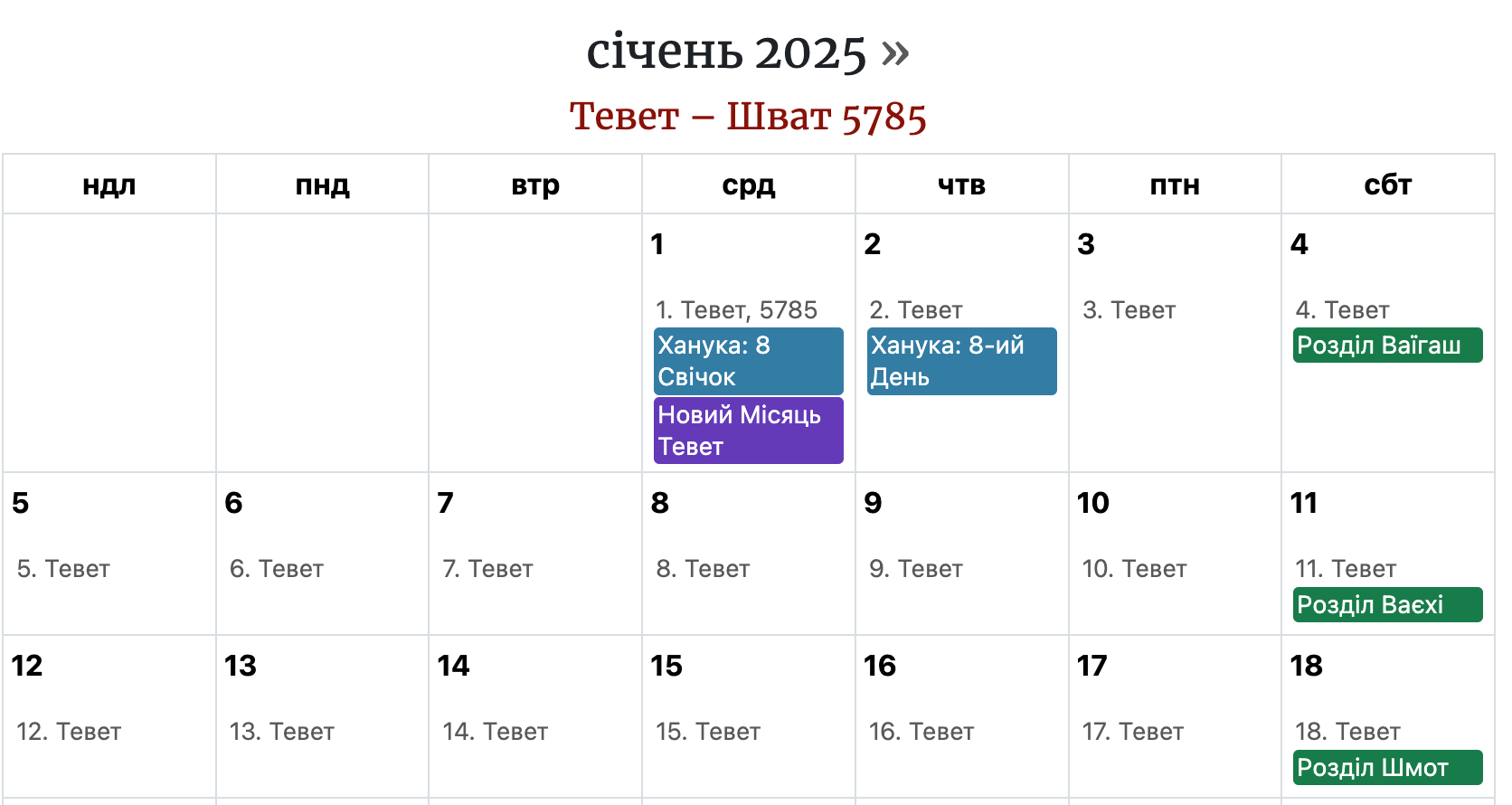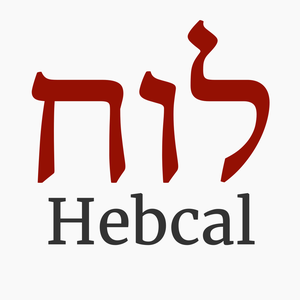Your comments
Great! Glad this worked for you.
Thank you for the suggestion. This is a good idea. We will look into implementing it.
Hi, thanks for using Hebcal!
Hebcal can generate Candle-lighting & Havdalah times for Shabbat and holidays, and start and end times for fast days. Over 100,000 world cities are supported.
You can read more here:
https://www.hebcal.com/home/4463/candle-lighting-havdalah-fast-times
You want to display the Hebrew date at the top of each cell? We have not tried that but you can probably do that with a FullCalendar dayCellContent render hook. This would be a custom JavaScript function you write to convert from Gregorian date to Hebrew date using the HDate class from @hebcal/core.
Hi, thanks for using the Hebcal APIs.
We are sorry we don't understand your question about combining Hebrew dates.
Could you paste a code sample and a screenshot or a URL of your demo explaining better what you see and more detail about what you wish to see?
There is extensive documentation about FullCalendar at their website
Thanks for the suggestion. We don't have the knowledge to be able to compile a list of tzadikim.
You might find a list on another website, for example https://dailyzohar.com/tzadikim/
If you have a list as a CSV file, you can import it into Hebcal using these instructions
https://www.hebcal.com/home/4322/csv-import-for-yahrzeit-anniversary-calendar
We have also finished adding the Hebrew month names to the calendar results page for all languages (not just English)

Fixed the XX problem by removing the Hebrew from PDF (which also shortens the text and makes it fit better on the printed page). It's still in the calendar feed in the description field.
Thanks for the screenshot and the URL. It appears the problem is with Hebrew in the PDF when printing. We'll look into a fix for this.
Customer support service by UserEcho


Excellent suggestion. We will consider adding some text like this (or the following)
https://support.google.com/calendar/answer/37100?hl=en&co=GENIE.Platform%3DAndroid
Important: You can only subscribe to a calendar on the web, from calendar.google.com.
You can show or hide calendars you’ve already subscribed to, but you can’t subscribe to a calendar in the Google Calendar app.